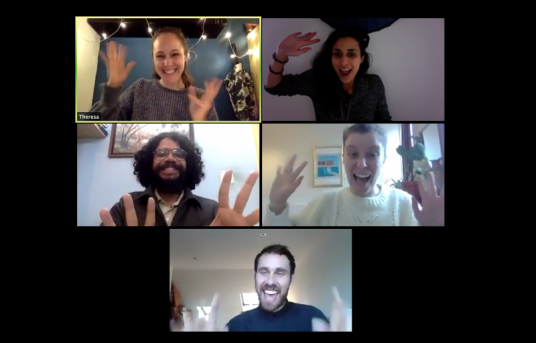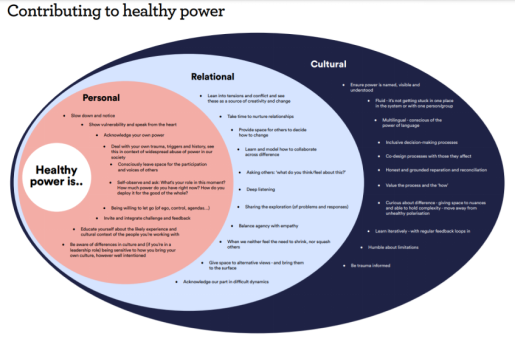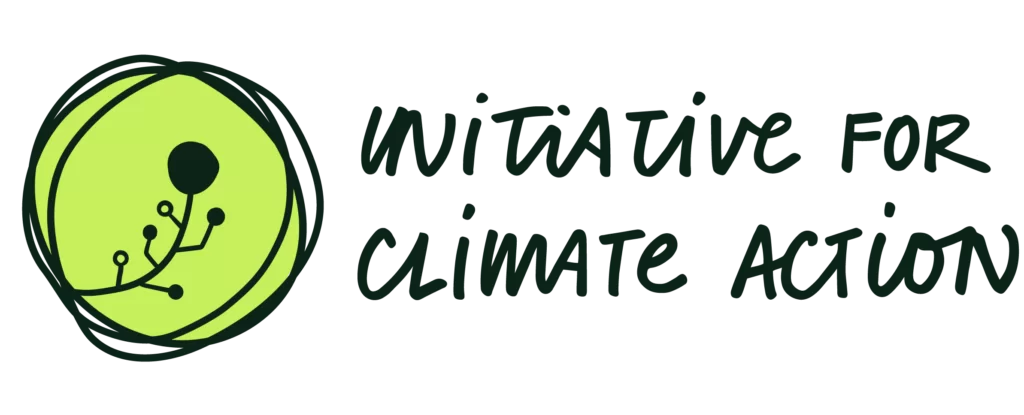Meeting Sustainable Living Ends with Radical Means
The Boundless Roots Community Conversation
Meeting the Sustainable Living Ends with Radical Means: ICA and the Boundless Roots Community Collaboration
The Boundless Roots Community sees itself as a global group of climate practitioners, exploring how we can radically shift the way in which we live in response to the climate crisis. We acknowledge the need for drastic changes if we are to meet the 1.5-degree challenge of limiting global climate change. But how do we actually do it?
The Initiative for Climate Action (ICA) shares much the same principles and sees itself as a natural partner to this community. Here, Abhayraj Naik, Jai Warrier and Vani Garg share their reflections from engaging with the Boundless Roots Community.
How would you describe the approach of the Boundless Roots Community?
JW: Their approach, to me, promises an honest attempt at conducting a systemic action inquiry of where we are, and where we want to go as a community under the climate emergency. This inquiry is an ongoing process. As the name suggests, we reflect on and discuss issues together – then test out ideas, assumptions or new approaches in our work – and then come back together to repeat the cycle, learning more and more as we go.
VG: The community tries to follow an approach where members split into sub-groups to explore threads of inquiry which they find to be particularly important in the larger conversation around sustainable lifestyle change. So far, together we have been part of conversations with diverse organizations and practitioners on these ideas.
AN: Actually, Jai and myself, are heartily, actively, and compassionately participating in these conversations. We helped put together a report ‘Roots of Transformation: Lessons and leverage points for sustainable living, 2019-2021’ capturing the learnings from the 2.5 years that the community has been active.
What were some key themes that you had discussions on?
AN: Three key themes wherein the group was engaged intensively were on the role of cultural landscapes that shape our behaviour, power dynamics that can either block or enable radical change and the role of meaning as a motivating force for changing how we live.
VG: I think we learned a lot as a group. There is clearly a need to change, and that need is immediate. Even the IPCC (the climate body that coordinates global climate action) recognises that behaviour change helps in making climate change mitigation possible. It is incredibly important from a carbon perspective: behaviour changes at scale can help massively reduce carbon emissions. The pandemic has affected this dynamic as well, changing the way governments, economies and businesses work, and how people perceive threats. However, the basic need remains: we need to radically alter the way people live, work, relate and spend their time (page 19 of the Report).
JW: Another theme that came up was the need to convey and communicate visions of positive futures focusing on what low-carbon lifestyles can look like in different contexts and across different domains (e.g. food, transport, energy) (page 34 of the Report). This would help us challenge existing narratives of our place in the world. I also think they should be contextualised into India to make them truly appealing.
Was there something that particularly caught your attention during these conversations?
JW: One of the key takeaways from the conversation was embracing the waves of change. As practitioners of transformative systems change through climate action at the ICA, there is a need to learn how to let go of the ways of working and theories of change that are no longer relevant, there is a need to re-frame stories in such a way that it acknowledges the messy change, it embraces pain, failures, and vulnerabilities, and thus give us the courage and strength to sit in uncomfortable conversations (page 39 of the Report).
AN: We need to learn to listen to and learn from nature and history….and then we also need to learn how we could apply some of our learnings at the personal, interpersonal, and systemic levels. Finding, celebrating, and learning from the lesser known stories in a way that provides a systemic roadmap for change is the key need of the hour. This will require creative constellations of people and organisations from different parts of the world to work, imagine, and experiment in many new and oftentimes strange ways! We must support such weird forays into the wild in any and every way possible, and therefore contributing to healthy power!

Healthy Power? What is that?
VG: You know, history has left us with power dynamics that affect our ability to make changes in our own lives. For example, we may want to live a low carbon lifestyle and move towards using purely renewable energy in our homes, but the unequal economies and the infrastructure if only accessible and affordable does not allow us to have affordable renewable lifestyle options.
AN: That is where healthy power comes in. There is a need to nurture and equip leaders with the capacities and processes to work with change and conflict, so that difference can be used as a source of creativity, rather than a divisive force that blocks us from changing together. This is healthy power. We need to build capacity in the system to design and facilitate processes that build relationships on foundations of trust that then ripple through the system.

What does ICA look forward to in this conversation?
JW: The dominant worldviews driving our structures at the moment – like those of the tech giants – are global, disconnected and abstract, which mean we end up with systems rooted in values that are not pro-social or human-focused, and conversations about meaning then tend to become individualistic and relativistic. We need more spaces to engage with our deeper needs and motivations in the world and time to tap into what gives us life. Offering these spaces at moments of transition in life has the potential to create lasting changes (page 63 of the report).
AN: I think a dream piece of work at ICA would be to design, launch, steward, and sustainably scale-up a truly transformative, ecosystem-creating, and learning-doing experiential program for climate action leaders from India and the South Asian region. By 2030, we would like to have significantly contributed towards enabling a rapid just transition towards decarbonisation in the South Asian region through our thought leadership, policy engagement, learning programs, and overall systemic change initiatives.

